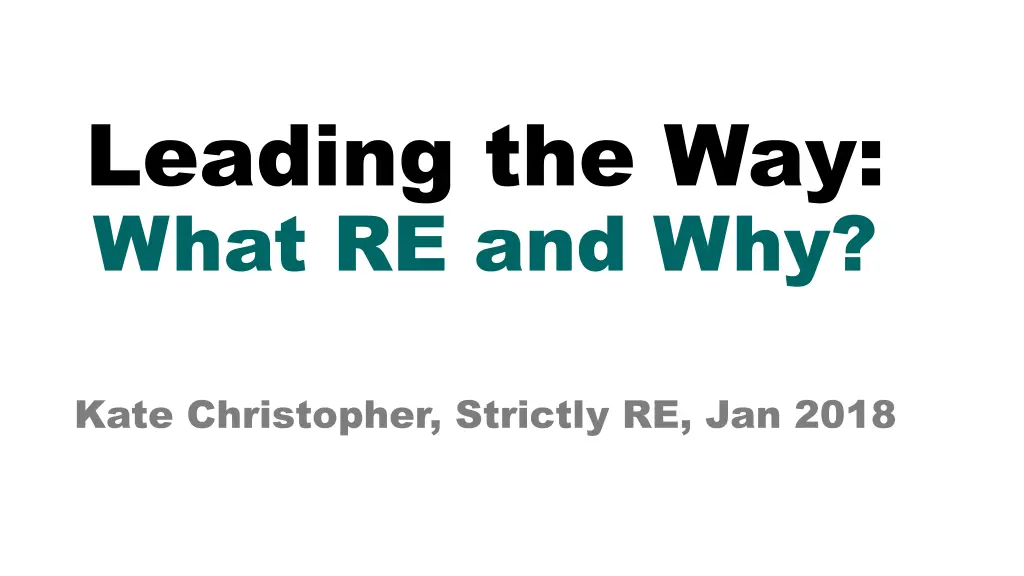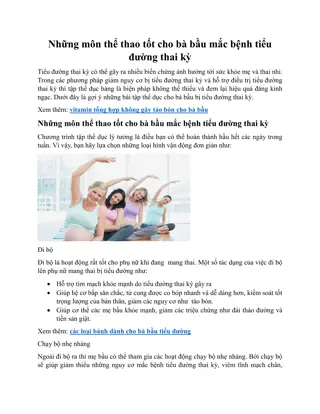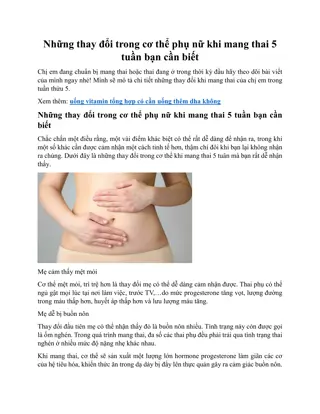
Understanding the Purpose of Religious Education
Explore the diverse purposes of Religious Education (RE) through theoretical frameworks and practical examples. Delve into the evolution of these purposes, from confessionalism to intellectual and personal benefits. Consider the critical viewpoints on the role of RE in the 21st century, including the emphasis on knowledge about religions and the promotion of autonomous decision-making. Gain insights into the significance of multifaith RE in contributing to a multicultural society while examining the evolving role of knowledge in RE based on various perspectives.
Download Presentation

Please find below an Image/Link to download the presentation.
The content on the website is provided AS IS for your information and personal use only. It may not be sold, licensed, or shared on other websites without obtaining consent from the author. If you encounter any issues during the download, it is possible that the publisher has removed the file from their server.
You are allowed to download the files provided on this website for personal or commercial use, subject to the condition that they are used lawfully. All files are the property of their respective owners.
The content on the website is provided AS IS for your information and personal use only. It may not be sold, licensed, or shared on other websites without obtaining consent from the author.
E N D
Presentation Transcript
Leading the Way: What RE and Why? Kate Christopher, Strictly RE, Jan 2018
Identity Power Sacred means to access a sacred reality Part of human life Personal Group-based Religion Force/ will Multi- dimensional Hope, belonging, meaning Inspiration Diverse Complex Institutional
Session Aims 1) Consider diverse purposes of RE through theory and practical examples 2) Consider the relationship of these diverse purposes 3) Articulate own purpose of Religious Education
What is the Purpose of RE? Brenda Watson (in Barnes 2007): Two original purposes: Confessionalism and moral development, no longer acceptable (p. 13) Cites critiques of phenomenology (pp. 14 ff): mish mash (Hull), misrepresents religions as comparable, downplays Christianity, promotes relativism, reduces and overgeneralises, separates pupils form religious/ spiritual insights Personal benefit Purpose of RE Intellectual benefit
What is the Purpose of RE? Trevor Cooling (in Barnes 2007): Paul Hirst s secular view- Christian influence limits liberal education. (p. 89 ff.) What sort of religious education is suitable for the 21st century? Should religion be private, as in the liberal state? Hirst ok to teach about religion because pupils need to know and understand people s religious beliefs and practices. RE is therefore a worthy subject, providing pupils with knowledge about religions and helping them to make their own autonomous choices (90). Cooling: to learn about others Hirst- to learn about the world, be part of the conversation between generations Personal benefit Purpose of RE Intellectual benefit
What is the Purpose of RE? Barnes (2014) Multifaith RE= confessional Underpinned by liberal Protestant values Benefit of all faiths assumed Credibility of faith assumed Religion/ faith not subjected to critical scrutiny (Barnes, 2014, p. 113, p. 140) Personal benefit Purpose of RE Social benefit Intellectual benefit Multifaith RE contributing to multicultural society
RE as a form of Knowledge Richard Kueh (in Castelli and Chater 2017) The knowledge problem (53): no consensus on the status, function and utility (53) of knowledge in RE. RE has been justified according to non- knowledge-based rationales (53) Assumption that knowledge in RE is good for the child is increasingly problematic (55) defective and unreliable (55) Knowledge in RE is justified instrumentally Kueh need to utilise the disciplines: for coherence, for improvement, and to set knowledge itself within a wider context. Barbara Wintersgill, BIG IDEAS (2017) Content of RE syllabuses has received inadequate attention Currently knowledge in RE is disjointed and incoherent The RE community needs to discuss on what criteria subject content should be selected.. THE BIG IDEAS
RE as a Unique Knowledge Felderhof in Barnes (2007) Religion as a thing to be studied a relatively recent phenomenon in the Western world. Prior to the modern period, religion was simply what everyone did (146). Secular not without faith or ethics Religion should be critiqued (p. 149) Conflict narrative between science/ secularism and religion should be rejected Secular humanism approaches life as if God does not exist . The school curriculum does this. What of RE? RE needs to be different. Because it is the one subject that considers humans before God (153) Conroy (2013) Conroy et al multidisciplinary study RE = extraordinarily complex (p. 9); different in legal, educational and social standing Hugely inconsistent, little known about it. RE = a strange social practice (p. 37) Lacks original cultural and religious prestige Religious commitments reduced to ethical positions, often inaccurate or misrepresentative. The transcendent truth claims of religion reduced or avoided, as having no place in a rationalistic learning environment.
To understand religion as unique knowledge? To benefit from unique knowledge?
RE as Dangerous Knowledge Neil McKain in Castelli and Chater (2017) why should any topic should be off-limits in the classroom? Pupils need to practice asking difficult questions and exploring difficult topics Avoiding difficult topics shows pupils that all opinions and beliefs are to be respected Allow children to develop their own view and to learn more fully about the world.
Does this Matter? 1. Do we have to choose one purpose? 2. Does it matter that there are diverse purposes? 3. Are purposes in conflict and damaging RE, or in a beneficial creative tension? 4. Does a clear vision help manage non-educational agenda (such as British Values), or is it too rigid? 5. My school, my vision: what do I need?






















